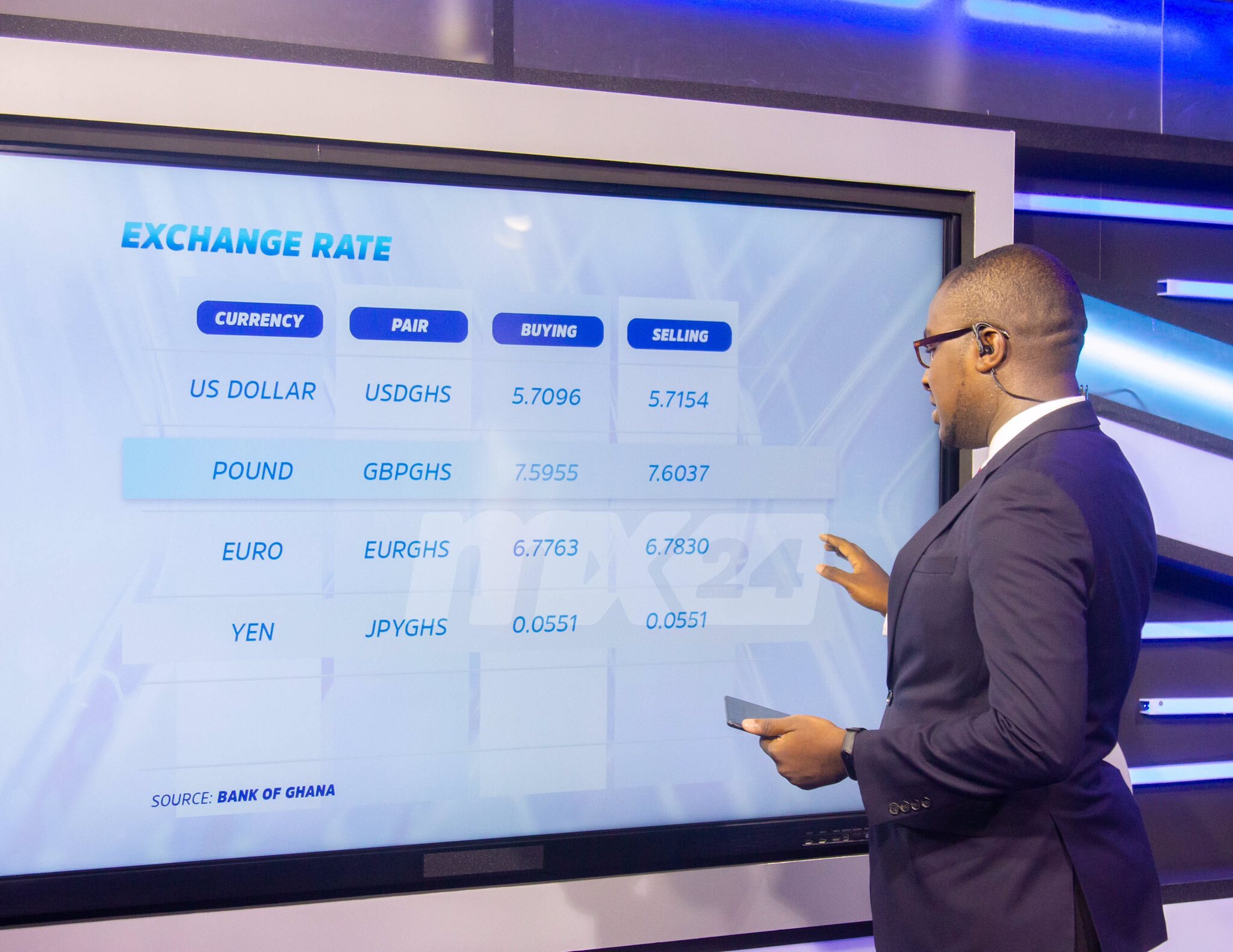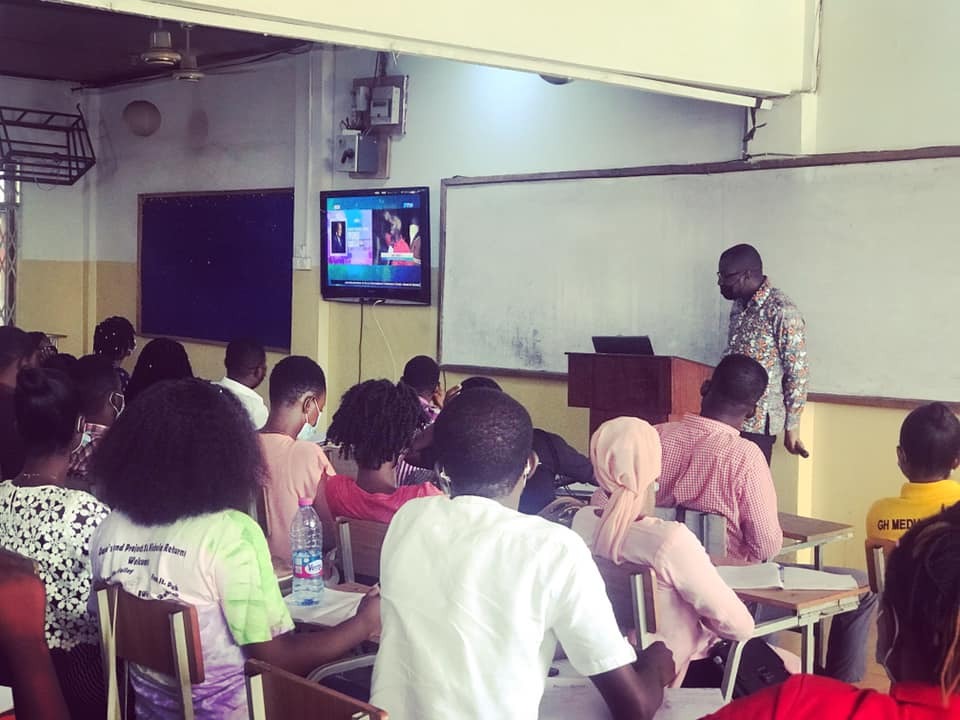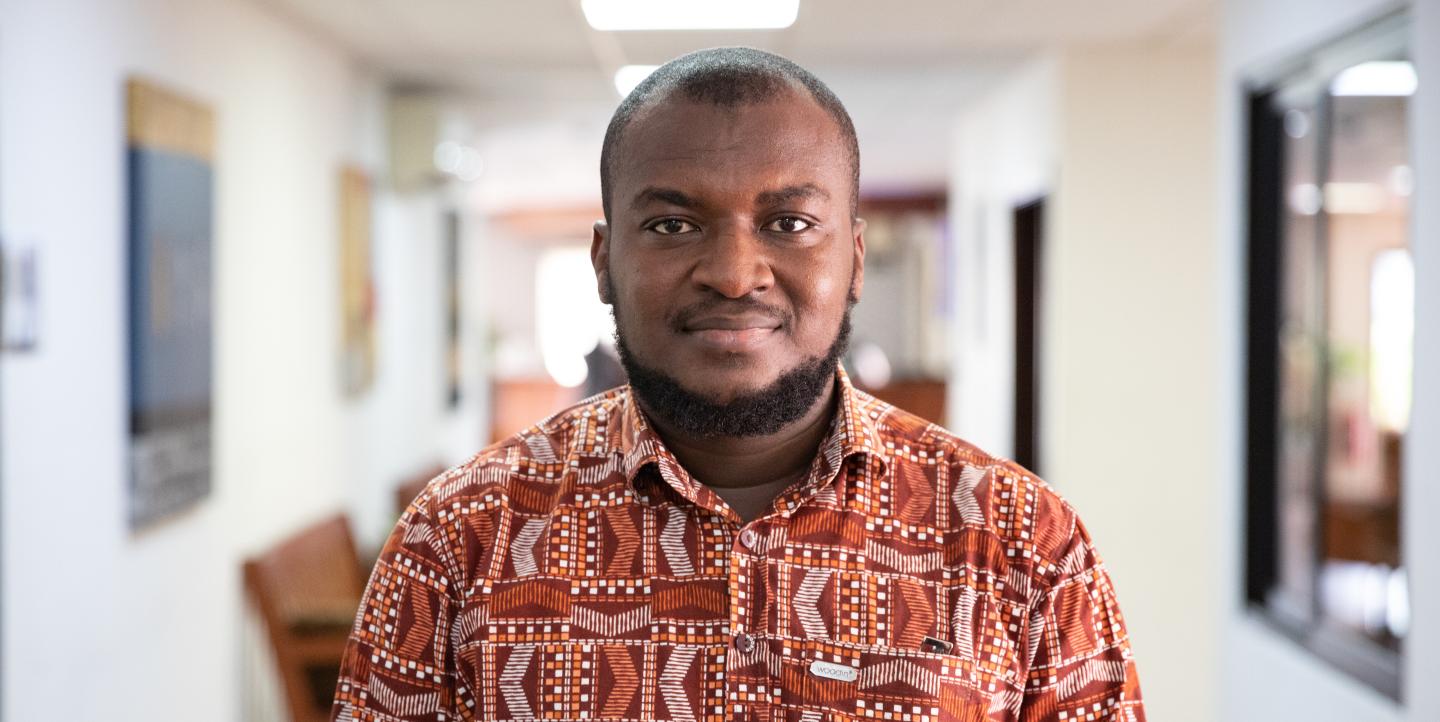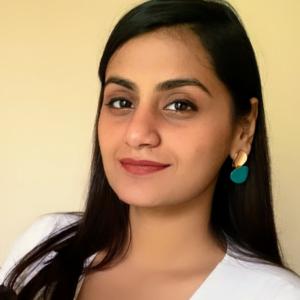Ghanaian journalist Emmanuel Ameyaw spent his childhood watching the news with his mother.
One evening, the Ghana Broadcasting Corporation aired a story about a village whose only source of water was a small stream. Water was scarce – as a result of the story, an NGO decided to build a borewell for the residents. This impact inspired Ayemaw to pursue a career in journalism.
While pursuing his bachelor's degree in consumer sciences at the University of Ghana, Ameyaw reported for the university’s student-led news outlet. Two years after graduating, he secured his first job as a professional journalist, reporting on politics and business for TV Africa. He later became a producer and news anchor at the outlet.
In 2019, Ameyaw attended a climate reporting workshop organized by Ghana’s Environmental Protection Agency, which kickstarted his focus on environmental reporting. He has gone on to report on topics such as plastic pollution, illegal mining, deforestation, electronic waste and more.
Ameyaw left TV Africa in 2020, and worked at other news channels such as MX24 TV and MOZO TV. Along the way, he found himself constantly drawn to climate-related stories.
In 2021, he launched The Climate Insight, a non-profit news organization reporting exclusively on climate topics. That same year, he also became a Global Investigative Journalism Conference (GIJC) Fellow, and in 2023, he was a Clean Air Reporting Fellow at New Narratives and founded the Climate Journalists Network of Ghana. He is currently a member of Hostwriter, the Oxford Climate Journalism Network, and Earth Journalism Network.
I spoke with Ameyaw about his experience reporting on the environment, what led him to start his own news organization, the struggles that come with it, and how IJNet has helped him throughout his career.
What led you to establish The Climate Insight?
I stumbled on data that said that more than 50% of Ghana's population does not have any idea about climate change. That's a report done by Afrobarometer.
It was very striking for a country that’s been tagged as very highly vulnerable to climate change. There were also issues in terms of people not understanding the impact of climate change on their livelihoods. So in 2021 I started The Climate Insight and one of the first stories I did was on the illegal dumping of electronic waste.

There's a law by the Basel Convention that prohibits the dumping of electronic waste into developing countries. What we see is, despite the law and even local laws in Ghana, we find a lot of electronic waste being dumped down, and they end up at a place called Agbogbloshie, where young men bend electronic waste to make copper wires and other materials to sell, and it's very harmful.
My story contributed to triggering a government action on clearing the e-waste site. I cannot take full credit for that because other journalists also reported on the issue. Through my story, months later, the government evacuated all of them and reclaimed the land. So that e-waste dump is no more there, it's been cleared.
What is it like to run your own independent news outlet?
I run the newsroom, I am the editor. We have a small newsroom of just five reporters, and then we have a couple of volunteers who write stories when they feel like it. We have a couple of people within the NGO sector who are also journalists, and they want to write about key environmental issues. But the core team is just five people.
I used my personal funding to establish The Climate Insight. We have a small office space, which is free because a relative decided to offer the space to me. In terms of sustainability, that has been a challenge. We've been trying to explore ways to generate revenue or keep afloat. One of the things you're looking at is partnership with key stakeholders whose interests align with our work. Our primary targets are civil society organizations that offer media grants.

And sometimes it's not just about the funding, it's also about tools and resources that can balance our work. I see IJNet as a very useful partner because, even though directly we are not partners, we rely so much on the free resources to train our people and our team members. We rely on tips and opportunities. We are also pitching for media grants to enhance our operations.
What are some of the challenges you’ve faced with climate reporting?
One of the key issues is the safety of journalists. I've had some members from the Climate Journalism Network Ghana talk about when they go out to cover stories, people might attack them. For example, a cartel that engages in deforestation: once a journalist goes out into the forest to try and investigate, their lives are at risk. There are people polluting the environment and making money from [it]. Once you expose them, you become their enemy.
Another problem is being able to get access to resources like academics and technical people who can add needed context. If you're doing a story on pollution and you want to get an expert in clean air, it's difficult [because] they are very busy.
There's also the issue of funding. It's incredibly difficult getting money to travel to remote parts of Ghana. Established, traditional newsrooms are not ready to fund climate stories; they focus on politics. If you are a journalist in a newsroom and want to pursue an environmental story, you find your own funding or try to convince your editor to be able to allocate funding.
Of course, I must add, climate data is very difficult to find. A lot of the data is international, by the U.N. and World Bank. There isn’t data that speaks to local situations.
How has IJNet helped you in your career?
Through IJNet, I found and attended workshops organized by Mongabay, Climate Tracker, Pulitzer Center and IJNet itself. Then I joined the Oxford Climate Journalism Network, which was almost a year-long training by Oxford University. I found that opportunity on IJNet, applied and got selected.
Through the Oxford Climate Journalism Network, I was inspired to start my current project, the Climate Journalists Network of Ghana, which we started in February last year. We are a network of climate journalists and we rely on each other for resources, tools and training.
Photos courtesy of Emmanuel Ameyaw.


